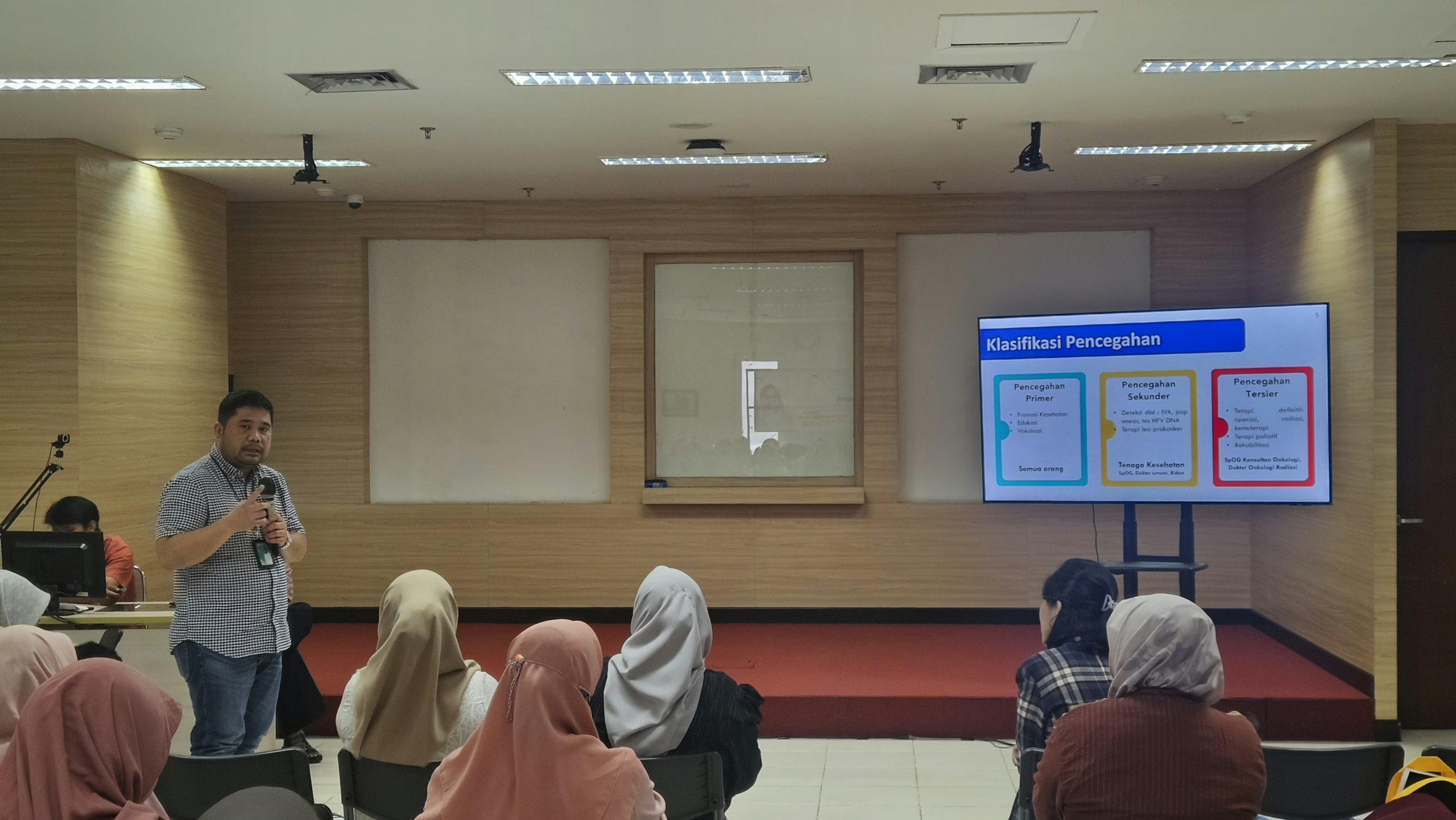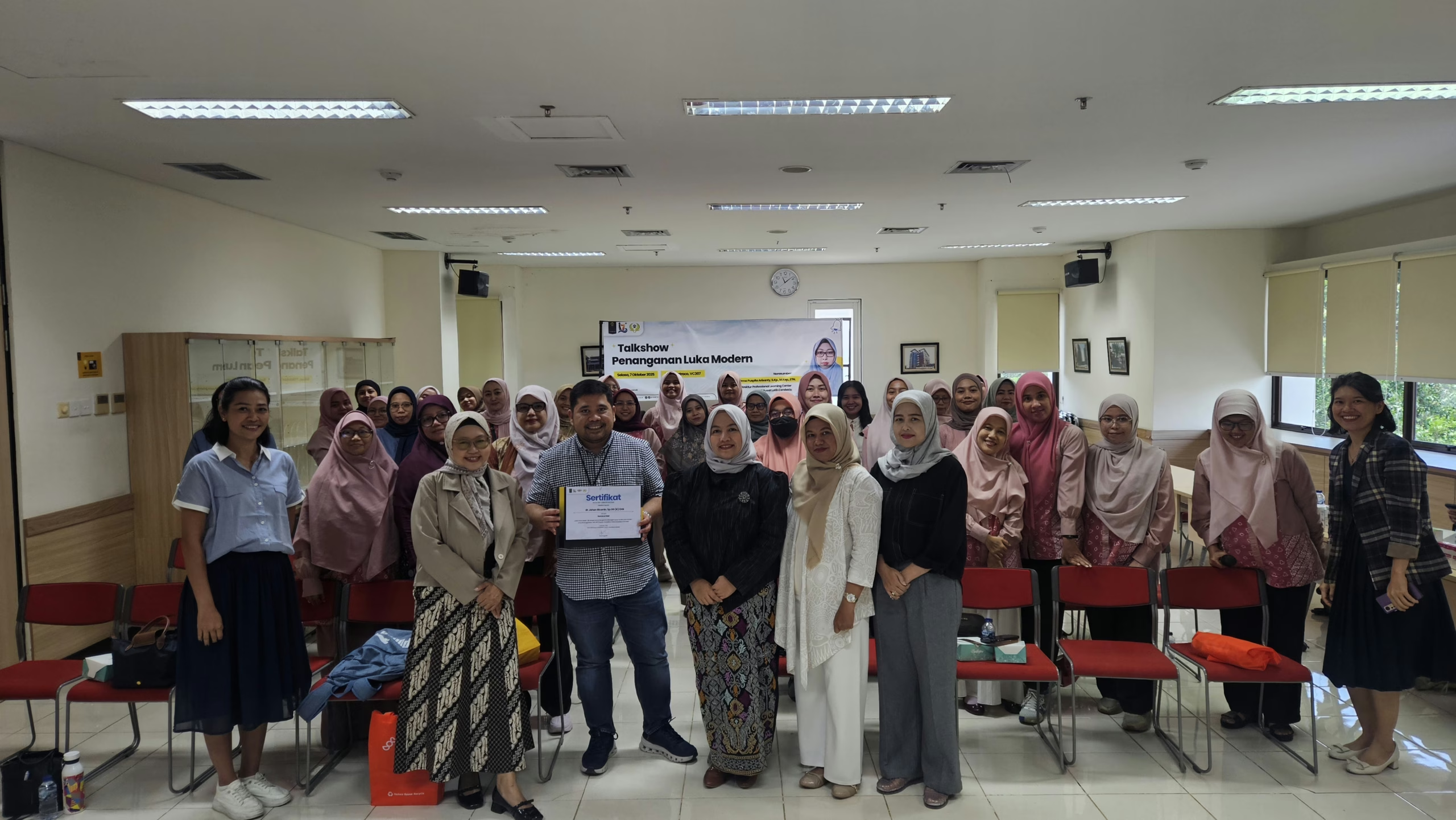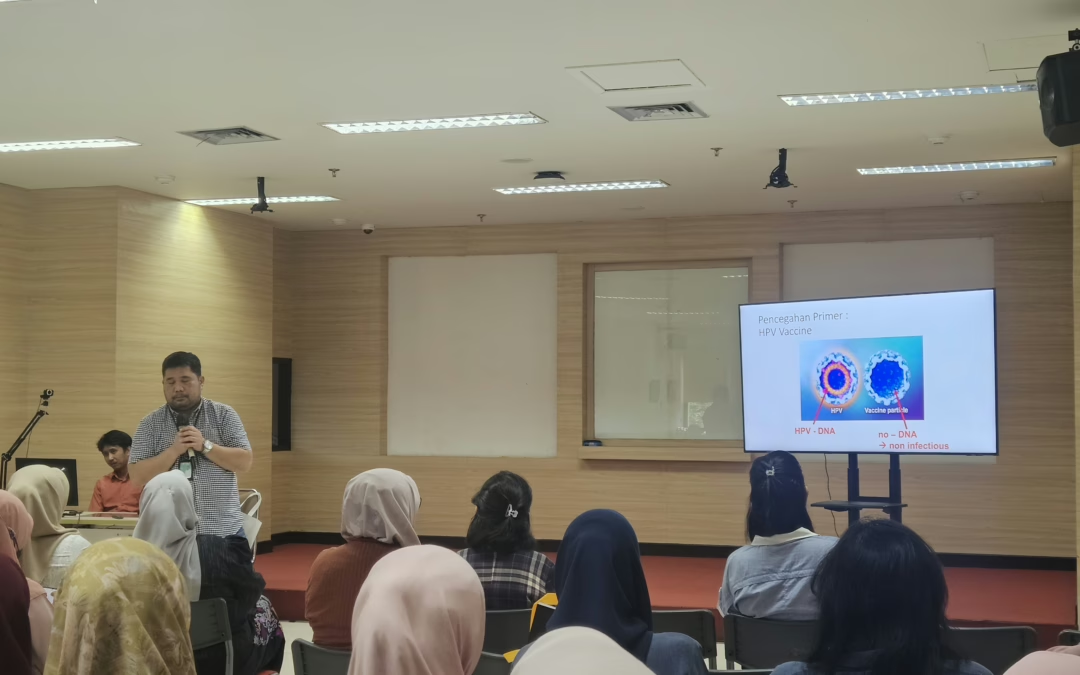Depok-The Family Women’s Association (IWK) of the Universitas Indonesia (UI) Vocational Education Program held a health education activity themed “Cervical Cancer Prevention: Early Detection for a Healthy Life” on October 7, 2025 in the Intraco Room, UI Vocational Program. This event was attended by the administrators and members of the UI Vocational IWK, which presented dr. Johan Ricardo, M.Ked (OG), Sp.OG (K), as a resource person.
In his presentation, dr. Johan explained that cervical cancer remains one of the leading causes of death in women worldwide, including in Indonesia. Globally, there are more than 600,000 cases of cervical cancer and 341,000 deaths per year, while in Indonesia the figure reaches 36,000 cases with more than 21,000 deaths. “Cervical cancer is primarily caused by
Furthermore, dr. Johan explained that 97% of cervical cancer cases are caused by HPV infection, especially types 16 and 18. This virus is transmitted through skin-to-skin or skin-to-mucosal contact, usually during sexual intercourse. Therefore, primary prevention through HPV vaccination is very important to prevent infection with the virus that causes cervical cancer. dr. Johan said, “The HPV vaccine has been proven effective in protecting women from oncogenic infections that cause cancer. The vaccine is given to women aged 10 to 55 years, and is now even available free of charge to girls in grades 5 and 6 of elementary school. The earlier the vaccination is carried out, the greater the protection.”
 (Photo: dr. Johan explains how to prevent cervical cancer)
(Photo: dr. Johan explains how to prevent cervical cancer)
In addition to vaccination, dr. Johan emphasized the importance of early detection or routine screening for sexually active women. Some common screening methods include Visual Inspection with Acetic Acid (VIA), a simple method performed at primary health care facilities to detect changes in cervical color; a Pap smear, a cytology test that detects abnormal cells in the cervix; and an HPV DNA test that directly detects the presence of the cancer-causing virus.
“Women who don’t get screened have a five-fold higher risk of developing cervical cancer than those who are regularly screened. Early detection not only saves lives but also reduces the psychological burden and long-term treatment costs,” added dr. Johan.
The Head of the UI Vocational Women’s Association (IWK), Dewi Anggraeni Padang, stated that this activity demonstrates IWK’s commitment to women’s health, particularly within the UI Vocational IWK academic community. Dewi stated, “We want UI Vocational IWK members to be more aware that maintaining reproductive health is not only for themselves, but also for their families and the surrounding community. Through this knowledge, we are supporting the Sustainable Development Goals (SDGs), particularly point 3, Good Health and Well-Being, for a healthier and more sustainable life.”
 (Photo: Group photo of UI Vocational IWK after the health seminar)
(Photo: Group photo of UI Vocational IWK after the health seminar)
The event was interactive, with a question-and-answer session covering early symptoms of cervical cancer, the benefits of vaccination, and how to maintain reproductive health. One of the members of the UI Vocational IWK, Raden Ghina Oktaviani, S.Tr.Ab., said she gained many new insights from the event. “This activity opened my eyes to the fact that cervical cancer can be prevented early. Previously, I didn’t know the importance of the HPV vaccine and regular screening. Now I feel better prepared to maintain my own health and also educate women around me,” said Ghina.
Through this activity, UI Vocational IWK hopes that all participants can become agents of change in disseminating women’s health education in their respective communities. This effort aligns with UI’s commitment to continuously fostering a healthy, knowledgeable, and empowered society as a contribution to achieving the SDGs.


